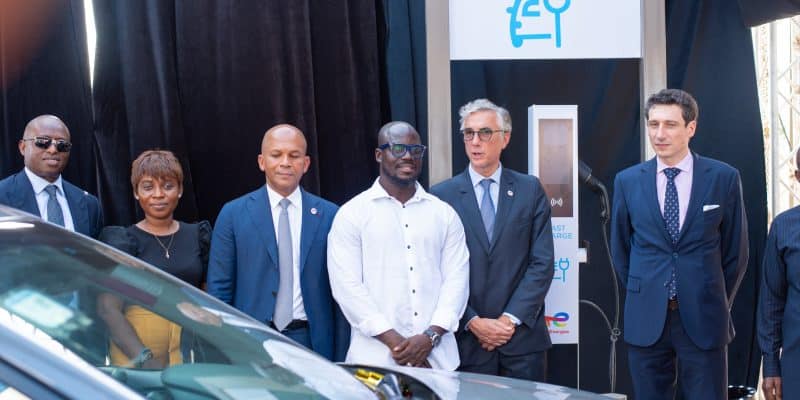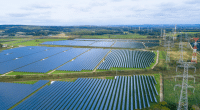In Ghana, the French oil group TotalEnergies is installing a charging station for electric cars at a service station in Accra. The initiative will contribute to the development of green mobility in Ghana.
This is a first in West Africa. The French oil group TotalEnergies recently inaugurated a charging station for electric vehicles at its Liberation Road service station in Accra, the capital of Ghana. According to Olufemi Babajide, General Manager of TotalEnergies Marketing in Ghana, the installation has a capacity of 22 kilowatts, which allows an electric vehicle to be fully charged in less than two hours.
Highlights of the Commissioning of the Electric Vehicle Charging Unit at Liberation Road TotalEnergies Service Station.#TotalEnergies #energytransition #evcharging pic.twitter.com/2P6fwcoIjr
— TotalEnergies Ghana (@TotalEnergiesGH) September 20, 2022
The initiative of the French giant, which will be extended to several other cities in the country, aims to support the energy transition in Ghana through the development of green energy and the support of new forms of mobility. “Today, we are encouraging countries with a proactive approach to electric mobility, thanks to our extensive infrastructure network, and by relying on solid partnerships,” explains Jean Philippe Torres, Senior Vice President of TotalEnergies Marketing and Services Africa.
According to the Ghanaian Ministry of Energy, there are currently more than 1,000 electric vehicles in Ghana and the aim is “to achieve carbon neutrality by 2050 by reducing CO2 emissions” in Accra, at a time when air pollution levels are high in the capital.
Read also-GHANA: Transport Sector Could Lose $4 Billion to Climate Hazards
Indeed, a joint study report by the African Development Bank (AfDB) and the Global Centre for Adaptation (GCA) predicts economic losses of close to US$4 billion in Ghana’s road, rail and maritime traffic if nothing is done to counter the effects of climate change. However, the study proposes a resilience plan that addresses several levels of economic development, including promoting investment in green mobility and building green infrastructure by 2050 in the West African country.
Benoit-Ivan Wansi







